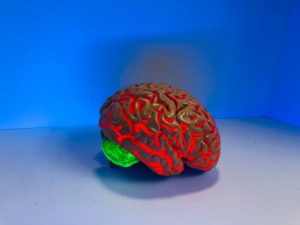ST LOUIS, MO – April 27, 2022 – New research found that a blood biomarker test may detect Alzheimer’s disease in older adults with memory problems. In two studies published April 21 in the Journal of the American Medical Association Network Open, showed that a blood test accurately detected the protein amyloid in 81% of samples when compared with an imaging scan of the brain. Amyloid accumulates and forms clumps in the brains of Alzheimer’s disease patients. Experts say the tests are important because they would be easier, cheaper and available to more people than brain imaging scans or spinal taps which are now used to detect biological hallmarks of the disease. Alzheimer’s disease afflicts an estimated 6.5 million Americans. This blood test, which is not yet covered by Medicare or private insurers, costs $1,250.
Blood tests represent “a very early start to a new era of diagnosis for Alzheimer’s disease,” said Doctor Stephen Salloway, a professor of neurology and psychiatry at Brown University who directs a memory and aging program at Butler Hospital in Providence, Rhode Island. “I see them as being transformative for Alzheimer’s, because once we validate them a little bit further, and hopefully get coverage for them, we can use them both to screen for clinical trials and to screen for treatment.”
It is hope that a blood test would be a biomarker that would detect early Alzheimer’s disease, informing individuals of their risk years before memory and thinking problems occur, and measure the effectiveness of treatment for early disease too. Researchers and drug companies have spent hundreds of millions of dollars over the past two decades on the theory that drugs clearing amyloid from the brain could slow memory decline.
Listen to the full report below:
Contact: Dick Needleman, Health reporter, 103.3 AshevilleFM, [email protected]
More Posts for Show: Asheville FM News Hour
